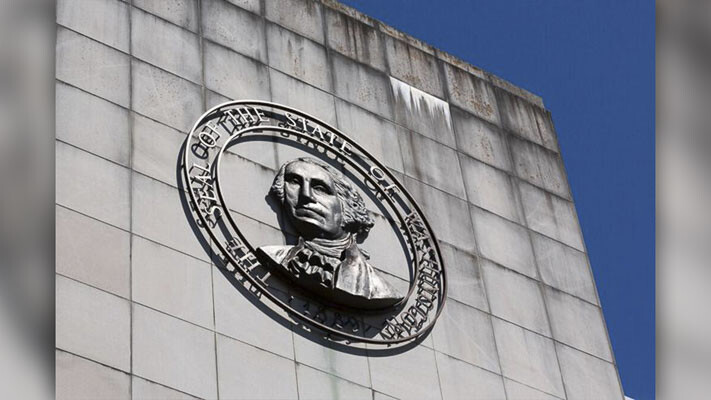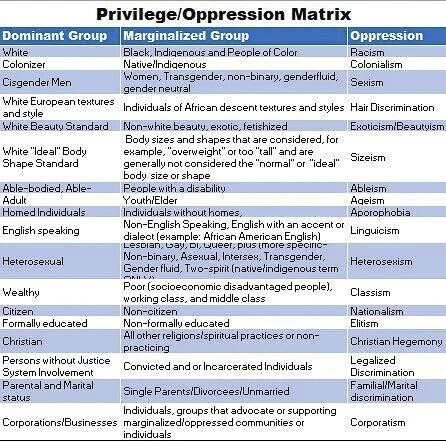
The interview panel for new state employees must undergo anti-bias training and the job candidate will be subject to questions regarding anti-racism and DEI
TJ Martinell
The Center Square Washington
As some states, such as Texas, have enacted laws banning the funding of Diversity, Equity, and Inclusion, or DEI, Washington state is implementing such training for all state agency employees and leadership.
Despite the recent firing of the state’s first director of the Office of Equity, the office continues its work under a Pro-Equity Anti-Racism, or PEAR, Plan & Playbook developed as part of a 2022 executive order by Gov. Jay Inslee. That work coincides with existing efforts by the State Equity, Diversity, and Inclusion Committee that manages the required training centered around concepts such as Critical Race Theory and institutional privilege.
State agencies like the Washington Utilities and Transportation Commission have a PEAR team that consults with an external advisory group to help them implement individual agency plans and strategies to, in the words of UTC, “promote equitable access to opportunities and resources to reduce disparities and improve outcomes statewide across state government.”
As demonstrated at a recent meeting of the UTC PEAR External Advisory Group, the groups adhere to “ground rules” developed by the DEI Council that require participants to do the following:
- Understand your privilege, the space you occupy, and the power dynamic you bring to this space
- Acknowledge that systemic racism and other forms of oppression exist, and that history informs current law and policy
- Actively recognize, interrupt, and dismantled white supremacy
- Accept that no action is equity neutral
“Privilege” is defined by a “privilege matrix” found on state agency websites classifying groups as either “dominant” or “marginalized.”

Groups considered “dominant” include those who fall under the following labels:
- Persons “without justice System involvement”
- “Homed”
- White
- Men
- English speaking
- U.S. citizen
- Healthy weight
- Christian
- Formally educated
- Married
- Heterosexual
Those labeled as “marginalized” include people who fit the following description:
- Non-white
- Homeless
- Overweight
- Convicted of a crime
- Divorced
- Disabled
- “Intersexual”
- “All other religions/spiritual practices” than Christianity
DEI’s work also includes racial equity and “competency training” for state agency employees and leadership. The Council defines “cultural competencies” as:
A congruent set of knowledge, skills, abilities, and behaviors that enable individuals to work effectively in cross-cultural situations. It promotes respect and understanding of diverse cultures and social groups, and an appreciation of each individual’s unique attributes. Cultural competencies enable employees to respond to others in a manner that demonstrates an effort to understand subtle differences such as communication style, problem-solving, values, and conflict resolution styles.
According to the UTC advisory group meeting, the UTC commissioners have already participated in the following:
- “Trauma informed management training”
- A group reading of the books “White Fragility” and “The Sum of Us: What Racism Costs Everyone and How We Can Prosper Together
Regarding the UTC commissioner training, UTC Director of Consumer Protection and Communication Anna Gill said, “there was certainly discomfort. These are hard topics for people. There was definitely some challenges when we were really talking about white fragility. We experienced a little bit of white fragility. We really worked through it and people are really engaged and learning. You get comfortable being uncomfortable.”
State employees are required to undergo DEI training, including watching a documentary titled “Who We Are: A Chronicle of Racism in America” and participating in other activities intended to provide “awareness of how racial inequalities show up in every system and workplace in Washington,” according to a slideshow presentation from the UTC advisory group meeting.
The interview panel for new state employees must undergo anti-bias training and the job candidate will be subject to questions regarding anti-racism and DEI.
This report was first published by The Center Square Washington.
Also read:
- Opinion: OIC tells consumers not to pay for ‘insurance’ you won’t likely benefit from: Does that include WA Cares?Elizabeth New (Hovde) of the Washington Policy Center believes you should consider yourself warned by the Office of the Insurance Commissioner about WA Cares and its maybe-only benefit.
- Opinion: Same road, different speed limit?Target Zero Manager Doug Dahl addresses a question about speed limit signs going into and leaving town.
- Progress being made at GRO Parade of Homes siteThe 2024 GRO Parade of Homes, presented by the Building Industry Association of Clark County, is a little more than a month away, and builders are busy completing the luxury homes before the big event, scheduled for Sept. 6 through 22 in Felida.
- Has trust in the media tanked over coverage of President Biden’s decline?After President Joe Biden’s calamitous debate performance against former President Donald Trump, and days after Biden’s decision Sunday not to seek reelection, there are still many questions about how the news media covered Biden’s mental and physical decline.
- Opinion: Hiding the growing cost of the Interstate Bridge replacementJoe Cortright of the City Observatory addresses the rising cost of the Interstate 5 Bridge replacement project.
- Letter: ‘This election I am NOT voting for Greg Cheney’Clark County resident Wynn Grcich shares her thoughts on Rep. Greg Cheney and the issue of fluoridation in area drinking water.
- Major gas line leak closes major arterial in Clark CountyFirefighters from Clark County Fire District 6 responded Thursday (July 25) afternoon to the scene of a major natural gas leak on NE 99th Street, directly in front of Columbia River High School.











